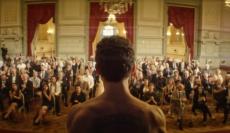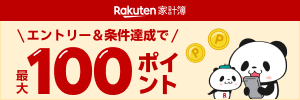「キャラクターはすべて、移民としての私がそうであったかもしれない可能性を拡張させて描いています。自由と、自由になるのがいかに難しいかについての物語です」『皮膚を売った男』カウテール・ベン・ハニア監督インタビュー/Interview with Kaouther Ben Hania about ”The Man Who Sold His Skin”
NeoL / 2021年11月5日 17時0分
「キャラクターはすべて、移民としての私がそうであったかもしれない可能性を拡張させて描いています。自由と、自由になるのがいかに難しいかについての物語です」『皮膚を売った男』カウテール・ベン・ハニア監督インタビュー/Interview with Kaouther Ben Hania about ”The Man Who Sold His Skin”
性犯罪に遭ったチュニジア人女性の闘いを描いた『Beauty and the Dogs』(2017)でカンヌ国際映画祭「ある視点」音響賞を受賞し、アカデミー国際長編映画賞のチュニジア代表に選ばれるなど注目を集めるKaouther Ben Hania監督による最新作、『皮膚を売った男』が11月12日(金)より全国公開。第77回ヴェネツィア国際映画祭のオリゾンティ部門で、主演のヤヤ・マヘイニが男優賞を受賞するなど多くの話題をさらった本作は、現代アートの巨匠Wim Delvoyeの作品「TIM」にインスパイアされたもの。恋人との再会のために自身の背中をアーティストに売り渡し、作品として美術館に展示される難民の姿を通して、Kaouther Ben Haniaが伝えたかったこととは。監督のファンであり、本作にも出演を果たしたモニカ・ベルッチ、同郷の偉大なデザイナーAzzedine Alaiaについてなどについても語ってもらった。(→ in English)
――本作はWim Delvoyeの「TIM(ティム・シュタイナー)」にインスパイアされた作品であり、実際に彼も保険代理店の人間として出演しています。Wimはアートシーンが経済を中心に回りだし、社会への変革や問題提起が疎かになっていることに警句を発していますが、映画界でもそのような問題は多くあります。本作が彼の作品そのものからのインスパイアなのか、そうした彼の制作への姿勢からもインスパイアされているのか教えてください。
Kaouther Ben Hania「そうした問題は程度は違えど全てのことにありますよね。『TIM』がトリガーになり、私はこれらすべての問題について考え始めました。アートマーケットやシネマ、そしてシネママーケットについて考えましたし、それらすべての問題はつながっています。そう考えるといろんなことがトリガーになりえたのだろうと思います」
――あなたは自分の身の回りのことも映画に反映されるそうですが、本作でいえばそれはどのような部分でしょうか。
Kaouther Ben Hania「私の個人的な体験ではなく、個人的な可能性を反映させているという感じでしょうか。私は自分の伝記を描いてはいません、非常に退屈でしょうからね(笑)。しかし、自分の可能性については常に自問しています。シリア難民について考えるとき、私はシリア難民ではないのだということを考えます。アーティストについて考えるとき、私はアーティストですが、現代アートのアーティストではないし、ギャラリーのオーナーではないと考える。私は恋をしている若い女性ではなく、結婚をしています。ですから、本作のキャラクターはすべて、移民としての私がそうであったかもしれない可能性のようなものです。私はヨーロッパに来た時やシェンゲン圏のビザなど、ビザの問題に直面してきました。ビザをはじめとする様々な壁が移民の前に立ち塞がっている。これらは間違いなく私自身が知っていることです。主人公は、何か間違ったことを言うと警察があなたのドアをノックするのではないかと心配しなくてはいけないような独裁政権下で生活しています。それも私が知っていることです。つまり、自分自身の一部からキャラクターを誕生させ、精通しているような出来事でそれらのキャラクターに栄養を与えてつくり上げていくわけです。そうすることで、キャラクターがチュニジア人でも女性でなくても、想像力で補うことができ、このキャラクターを演じる俳優を監督することもできます。そして俳優はそこからさらに自分の言葉、身体、声、顔、感情を持ってきて、キャラクターをより豊かにし、より本物としていくのです」
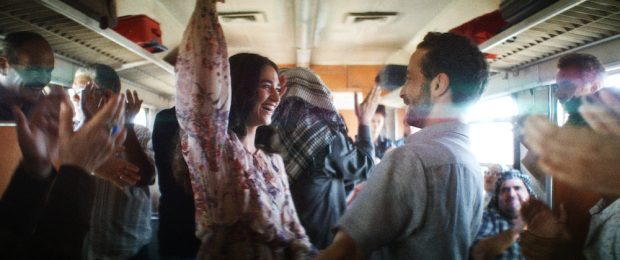
――滞在する権利と引き換えに、サム・アリは 上流階級の人々に従わなければなりません。つまり、この映画は西洋化と国際関係の不均衡に触れています。難民の状況はこのストーリーにどのように反映されていますか?
Kaouther Ben Hania「私の映画は一般的な難民の物語ではありません。一般的な難民の話には、ボート、航海、越境、警察など、そういったすべてが含まれていますよね。私の物語は非常に特異なものであり、すべての難民に起こることではありません。むしろ私はこの話で、すべての難民の決まり文句、難民の犠牲を避けたかった。本作での難民は、アートワークを私たちに引き合わせる一種の素朴な視線として存在しており、そのおかげでアートワークを取り巻いている美術への神聖視なしで作品を見ることができるのです。生き延びようとする普通の人間の視線でね」
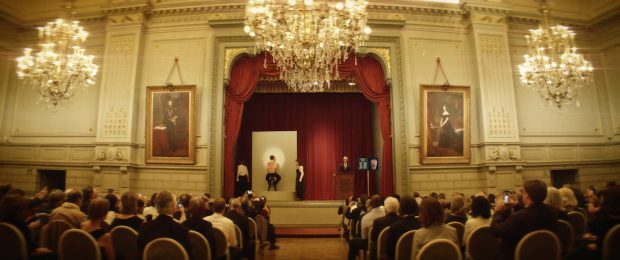
――パスポートが自由のシンボルとして使われていますが、同時にパスポートの限界や政治要素も示されているようにも思います。あなたにとって、また映画にとってのパスポートの意味は?
Kaouther Ben Hania「まず第一に、パスポートは人間が発明したものだということ。ホモサピエンスがアフリカ、中東、ヨーロッパから移動した時、彼らはパスポートを持っていなかった。つまり、これはごく最近の発明なのです。パスポートには、誰がどこに住んでいて、誰が国から国へ移るかを規制および管理するというアイデアから生まれています。そして人を分類するものになっていった。世界のパスポートのランキングや、最高のパスポート、最高の経済などについての記録文書もあります。下位リストの人々は、行くことができる国が少ない。私たちは入国を拒否されるのです。あなたが世界のその場所で生まれたという事実のためだけに、一流の市民ではないとされる。あなたが他の国の人々より危険である、またはインテリジェンスがないというわけではなく、持っているパスポートに基づいて判断されるのです。パスポート自体に多くの意味がありますが、そのうちの1つがこうしたことを意味しています。そのため、サム・アリはアーティストに会ったときに、『あなたは世界の“Right”サイドで生まれた』と言うのです。彼は自分が世界の恵まれた側に生まれたのではないことを知っている。彼のパスポートは彼が外に出ることを許可しない。それが彼が真実を受け入れて、あのような状況に身を置く理由です。彼は世界で他の国の人々と同じ扱いを受けられないのです」
――この映画では、主人公のサム・アリが所有の境界線を行き来し、時には反対をしながら彼自身の権利に立ち上がるシーンが目立ちます。身体は買われながらも精神は自由であるSam Aliの状態を描くにあたり何を表そうと思いましたか。
Kaouther Ben Hania「この映画は肉体についてのものでもあります。映画の最初の1分で、刑務所に収容されている肉体は多くの匿名の肉体と一緒にいるのを見ることができます。これらのことから、彼が自分の肉体を所有できない状況であることがわかります。肉体は州や国のものなのです。口にした言葉のせいでこの状況に陥ることになり、そこから自由になるために、彼は自分の肉体を売ることを受け入れます。この映画はまた、メフィストフェレスに魂を売るファウスト伝説に触発されており、サム・アリとアーティストの間で同様の議論が行われることになります。本作では魂を売りませんが、彼は自分の肉体を売り、最後まで肉体の檻とどまります。サム・アリは別の檻に入ると微笑みます。その檻では彼はより自由でありますが、そこには矛盾があるのです。彼が所有する彼の肉体は、彼だけのものではなく、誰もがそれを欲しがっている。自由であっても、肉体は自由ではないという矛盾が生じているのです。だからこそ彼は自分自身を解放するために肉体を使うことを決意するのです。彼は自分の肉体を脅迫的な方法で使用することで、人々に想像力と恐怖を呼び起こし、自由になろうと試みるのです。
つまり、この映画は自由と、自由になるのがいかに難しいかについて描かれていると言えます。旅行や言論の自由があるアーティストも、実はそれほど自由ではないことがわかる。彼は自分が稼げるシステムに依存しています。彼はシステムを必要とし、システムもまた彼を必要としています。本作は自由の概念について言及したものなのです」
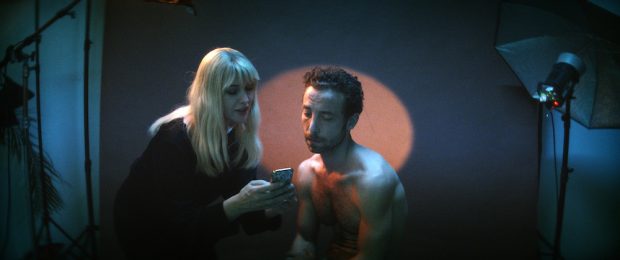
――ソラヤを演じるモニカ・ベルッチの演技も素晴らしかったです。彼女はあなたの作品『Beauty and the Dogs』を観ていて出演を快諾したというのはとても素晴らしいエピソードです。モニカとの撮影はどうでしたか?
Kaouther Ben Hania「そうなんです。彼女はその作品が大好きで、私と一緒に仕事をすることを快諾してくれました。彼女は本当に興奮していました。彼女は女性監督との仕事も大好きなんです。モニカは大スターで、一度も会ったことがなかったし、一緒に仕事をできるのは私も本当に嬉しかったです。私はこれまで映画でスターと仕事をしたことがなかったので、スターに近づいて映画に出演してもらうことに恐れを抱いていました。彼女に脚本を送ったのは私のエージェントなのですが、彼女は即答してくれました。現場では監督と俳優であるため彼女がスターであることなど忘れていたのですが、エキストラの人々がモニカとセルフィーを撮っていて、彼女はスターなのだと改めて認識しました」
――彼女の偽のブロンドは「西洋」を擬態するブルジョアの象徴にも思えますが実際はどのようなメタファーなのでしょうか。
Kaouther Ben Hania「おっしゃる通りです。そのおかしなアイデアのために私は彼女を偽の金髪にしたかったし、彼女はそのアイデアを聞いて興奮していました。私たちはソラヤの性格について話していました。そして彼女はソラヤが元々どういう人物か、どこの出身なのかなどの情報を知らないため非常に漠然としたキャラクターであると私に言っていました。ソラヤは金髪のかつらで出自を隠すことによって現代美術の世界に受け入れられることを望んでおり、そのために偽物を纏ったキャラクターとなります。私がプロデューサーに『モニカは金髪になる』と伝えた時、彼らは怒っていましたよ(笑)。彼らはモニカが世界で最も美しいブルネットであることを知っていましたからね。彼女を金髪にすることは冒涜のようなものです。しかし、ソラヤというキャラクターをより豊かにするためにはこの小さな偽の部分が必要だと確信していたので金髪にしました。そしてそれは素晴らしい役割を果たしてくれました」
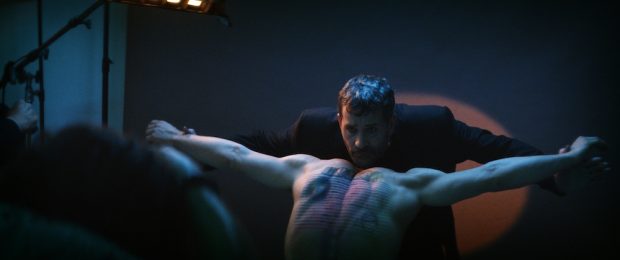
――本作は難民などの様々な問題を提起しながらもサスペンス的な構成ももち、観客を魅了する作品になっています。テーマとエンタテイメント性のバランスをどのように取りましたか。
Kaouther Ben Hania「バランスをとるのは簡単ではありませんでした。私がやりたかったのは、自分が観客として観たいと思うような映画を作ること。私は常に観客のことを考えていますし、観客の立場になって考えると好きではないことがいくつかあることに気づきます。理解できないようなもの、いろんなことをねじ込みすぎているもの、つまらすぎたりするようなものは誰だって好きではないはず。そうやって作家や語り手としての自分と、オーディエンスとしての自分の間を行ったり来たりして作品を作り上げていくのです。オーディエンスとしての目線はアーティストとしての自分の一部となっており、『これは十分な出来ではない、あなたはもっとうまくやることができる。もう一度書いてみて』と囁きかけてきます。創作にはこの道のりが大切ですし、自分が観たい物語を映画という形にするために必要な過程だと思います」
――インタビューで長生きするためにアートは作られると仰っていましたが、アートにはどのような価値があると思いますか。
Kaouther Ben Hania「あのインタビューで言いたかったのは、実は『アートは私たちを長生きさせる』ということでした。アートは私たちに意味を与えます。私たちは意味を常に探しているし、人生は非常に混沌としている。アートは宗教のように私たちに意味を与えてくれます。私たちの生活がますます複雑になるにつれて、アートはますます私たちに意味を与えてくれるものとしてそこに存在しているように感じます。意味を持つことによって、私たちは平和を感じ、それによって長生きすることだってできるのではないかと思うのです」
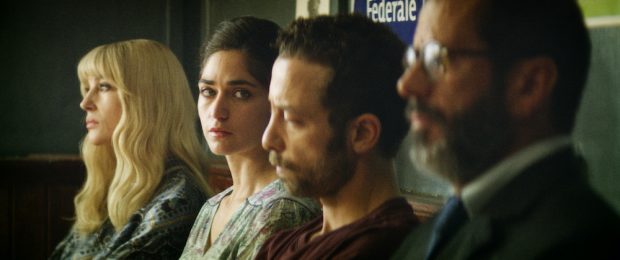
――個人的な質問ですが、あなたと同郷のAzzedine Alaiaは私も大好きなアーティストの1人です。偉大なファッションデザイナーですね。あなたとAlaiaとの交流について何か印象深いエピソードがあれば教えてください。
Kaouther Ben Hania「アライアは私にとってまるで父親のようでした。アライアはチュニジア人なので、会える時はいつもとても嬉しかった。私の映画『Beauty and The Dogu』がカンヌで上映された時に彼に会ったんです。私は若いチュニジアの監督として自己紹介しました。いつか彼に自分のドレスを着せたいと思ってもらえたらと願っていました。彼は自分の作品づくりに非常に熱心で、人道的で、あたたかなハートを持ち、女性を崇拝していたので、この出会いは喜びに満ちたものになりました。アライアは女性をよく知っているんです。彼が若くして亡くなったとき、本当の父が亡くなったかのように悲しかったです。彼の死は不公平のように感じますが、運命でした。彼はまだ世に送り出す多くの作品を作れたと思います。
実は『皮膚を売った男』の制作を始めたとき、映画に彼のドレスをいくつか入れたいと思っていました。映画にはアライアのドレスが3つか4つ出てきます。私たちはアライアのオートクチュールとパートナーシップを結び、ドレスを提供してもらいました。それは私がアズディン・アライアとのつながりを保つ方法だったのです」
――最後に、今長編のドキュメンタリーを制作れているそうですが、どのような内容ですか。
Kaouther Ben Hania「撮影前に映画について話すのは好きではありませんが、女性と4人の女の子、つまり母親と娘のドキュメンタリーです。 2人の年長の女の子たちは数年前にISISに参加しました。私たちが抱えており、子どもたちに受け継がれているトラウマについて、母娘関係という観点から語られるものになります」
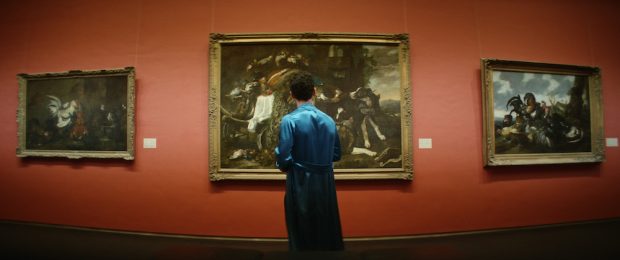
text Maya Lee(IG) & Ryoko Kuwahara(IG)
『皮膚を売った男』
2021年11月12日(金)Bunkamuraル・シネマ、ヒューマントラストシネマ有楽町ほか全国公開
https://hifu-movie.com
監督:カウテール・ベン・ハニア(「Beauty and the Dogs(Aala Kaf Ifrit)」(17)第91回アカデミー賞国際長編映画賞チュニジア代表)
キャスト: ヤヤ・マヘイニ、ディア・リアン、ケーン・デ・ボーウ、モニカ・ベルッチ、ヴィム・デルボア
2020年/104 分/チュニジア・フランス・ベルギー・スウェーデン・ドイツ・カタール・サウジアラビア/アラビア語、英語、フランス語 The Man Who Sold His Skin(英題) L'Homme Qui Avait Vendu Sa Peau(仏題)
配給:クロックワークス
© 2020 – TANIT FILMS – CINETELEFILMS – TWENTY TWENTY VISION – KWASSA FILMS – LAIKA FILM & TELEVISION – METAFORA PRODUCTIONS - FILM I VAST - ISTIQLAL FILMS - A.R.T - VOO & BE TV
主人公サムは、当局の監視下にあり国外へ出られなくなってしまう。海外で離れ離れになってしまった恋人に会うためなんとかして出国したいと考えていた彼は偶然出会った芸術家からある提案を受ける。それは、背中にタトゥーをし、彼自身が”アート作品”となることだった...。芸術品となれば大金を得ることができ、展覧会の度に海外にも行ける。恋人に会うためオファーを受けたサムだったが、次第に精神的に追い詰められてゆく。高額で取引されるサムを待ち受ける運命とは...。
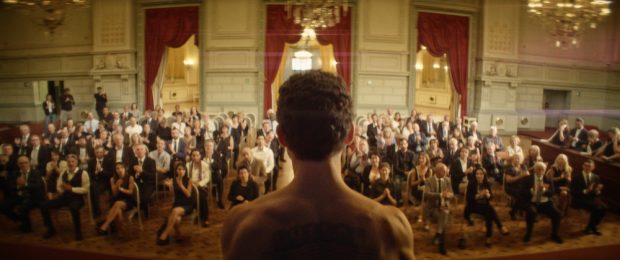
――Thank you so much for this spectacular film. And thank you for producing works , as a woman, such as“Beauty and the Dogs” and “Challat of Tunis”.
Using the composition of suspense while bringing up existing issues, this work captivates its audience. How did you balance the entertainment aspect with its theme?
Kaouther Ben Hania : It’s not an easy balance. My main obsession was to make a movie that myself , as an audience would want to see. I think about the audience all the time. Putting myself as an audience, there are some things I don’t love. I don’t like it when I don’t understand things. I don’t like it when it’s too screwed or when it’s too boring. So you go back and forth between you as an writer, storyteller, and you as an audience. The audience is the part of me as an artist, telling me “It’s not good enough, you can do better, write it again”. In this process you advance and this is the creative process. This is where you shape the story to what you want to see in a form of a movie.
――This film was inspired by Wim Delvoye’s work,‘TIM’(Tim Steiner). In fact, he appears in the film as the insurance agency. Wim stated that the art scene has revolved around the economy. He warned how social change and issues are being neglected, and similar problems exist in the film industry. Was this film directly inspired by Wilm Delvoye’s work, or was it inspired by his attitude towards art production?
Kaouther Ben Hania : All these things are together. They are very different levels. ‘TIM’was the trigger, it was the starting point where you start thinking about all those issues. It gets you to think about the art market and the cinema, cinema market. All those things came together. It’s not only one thing that triggered it.

――I read an interview that you often reflect some of your personal experiences in the movie. What would be that section in this film?
Kaouther Ben Hania : Not my personal experiences, but my personal possibilities. I’m not drawing a biographical story of my life, it would be very boring. But I’m asking myself about my possibilities. Because when I think about Syrian refugees, I’m not a Syrian refugee. When I think about an artist, I’m an artist but not in contemporary art or gallery owner. I’m not a young girl in love, married to another guy. So all those characters are like possibilities of me as an immigrant. I faced the visa issue, to come to Europe, the Schengen Visa and all the walls in front of an immigrant. These are somethings that I know. Living under dictatorship, as the main character, or when you say something wrong you are afraid that the police would come knock on your door. These are things that I know. So you take from yourself the possibilities of character and you nourish those characters with those things you are familiar with. Even if your character is not Tunisian, or a women. You let your imagination do this work and direct actors for this character. He then brings his word, his body, his voice, his face, his emotions to make it more rich or more authentic.
――In exchange for rights to stay, Sam Ali must obey the western upper class. The film touches on westernization and the imbalance of international relationships. How is the refugee situation reflected through this storyline?
Kaouther Ben Hania : My film is not the common refugee story because the common refugee story involves the boat, crossing the sea, crossing the frontier, facing police, all those things. In my story it’s a very singular different story. It’s not something that happens to all refugees. I wanted to avoid all the refugee cliches, the victimization of the refugees, to tell this story. To me refugee is a kind of naïve gaze that introduce us to the artwork so we can see it without the sacred thing that surrounds the artwork. Which is dictated by the official establishment and cultural point of view by an ordinary guy in survival mode. He’s a refugee but he’s also our main character that introduces us to this artwork.

――The passport was a big symbol of freedom in the film. At the same time, we saw the passport is strongly related to money and politics. To you, and to the movie what meaning does the passport hold?
Kaouther Ben Hania : I mean the passport is a human invention first of all. Because when Homo Sapiens went from Africa, Middle East and Europe they didn’t have passports. It’s a very recent invention. The passport came with the idea to regulate and control who lives where and who changes from one country to another. Little by little it became something that is used to classify people. There is a document about ranking of passports in the world, the best passports, the best economy, the best thing. When you see people from the low list, they have less and less countries they can go to. We are refused you know. Just for the fact that you are born in this place in the world, you are not a first-class citizen. Not that you are more dangerous, or less intelligent, it’s only based on your passport you hold. So, yes the passport itself has a lot of meaning and one of them is this meaning. That’s why when Sam Ali meets the artist he tells him, “You are born in the right side of the world”because he knows he wasn’t born in the right side of the world. His passport can’t allow him to go, that’s why he accepts the truth and puts himself in the situation. He doesn’t have the same treatment in the world.
――In the film the protagonist Sam Ali travelled between the lines of being owned and owning himself. He agreed to sit in exhibits, but he had his own form of rebellion as well. By showing these two sides oh him, what did you try to show in this movie?
Kaouther Ben Hania : This movie is about the body. The body that started at the jail, the first minute of the movie, he was with many anonymous bodies. These kinds you don’t own your body. Your body belongs to the state. What you have said from your mouth can put you into this situation. In order to be free, he accepts to sell his body. The movie is also inspired by Faust Legend where he sells his soul to the devil, Mephistopheles. This discussion comes between Sam Ali and the artist. In the film he doesn’t sell his soul because it isn’t a concrete thing. He sells his body and stays in this jail till the end resolution. Sam Ali smiles when he enters to another jail. It’s a different situation here. In this jail he’s more free which is a contradiction. His body that he possess, doesn’t belong to only him. Everybody wants it. So there is this contradiction that when you are free your body isn’t free. The body doesn’t mean anything, you can only feel the unjustice of the situation, and that is why you have to use it to free youself. That’s why he mimics the bomb explosion. He’s using his body in a threatening way, calling imagination and fear. In this way he knows that he can be free.
So this movie is about freedom and how it’s very difficult to be free. Even for the artist we think that he is free because he has the freedom of travel, freedom of speech but at the end we discover that he’s not that free. He depends on a system that he nourish and he needs the system and the system needs him. So, the film is about the notion of freedom.

――Monica Beruccias acting was also stunning. It’s nice to hear that she agreed to act after watching your film,“Beauty and the Dogs”. What did she feel after seeing your work, “Beauty and the Dogs”? And how was it working with her?
Kaouther Ben Hania : Yes she loved it. That’s why she accepted to work with me because she saw “Beauty and the Dogs” and she loved it. And she had the secondary part but she was really excited. She loves working with women directors as well. It was really a pleasure to work with her because I don’t know her and I ‘ve never met her and she is a star. I never worked with stars before in my movies so I was afraid to approach a star and cast her in my movie. It was mainly my agent who sent her my screenplay and she said yes automatically. It was really great. On the set I forget that she is a star because she was like any of the actors I was directing. But when some extras arrived, they took selfies with her. That was when I felt that she was a star.
――Her fake blonde seems to be a symbol of bourgeoise that mimics the“Western”. What metaphor did this represent?
Kaouther Ben Hania : Yes it was a funny idea because I wanted her to be fake blonde and she was excited about the idea. We were talking about her character and she told me it was an obscure character who doesn’t know her origins. She wanted to be accepted to the world of contemporary art by hiding her origin with the blonde wig but there is fakeness to the character. So when I told the producers, we have many producers, that Monica would be blonde, they were upset. Because they knew she was the most beautiful brunette in the world. Making her blonde was like sacrilege. But I was sure that the character needed this small fake things to make Soraya richer. I did the sacrilege and made Monica blonde and it was great.
――How relevant are art to our lives?
Kaouther Ben Hania : I actually meant “Art make us live longer”. Art gives us meaning. We lack meaning, life is very chaoitic. Like religion, it gives us meaning. As our life are becoming more and more complex, art is there to give us meaning. By having meaning we can be more in peace with ourselves, thereby live longer.

――This is a personal question, Azzedine Alaia is one of my favourite artists. He is a great fashion designer. Please tell us any memorable experiences, having to work with him.
Kaouther Ben Hania : I think that Alaia was a father figure to me. It’s always very joyful to see Alaia because he’s Tunisian. I met him when my movie, “Beauty and the Dogs” was at Cannes. He did the dress, since it was Cannes Red Carpet. So I told myself this is the moment to introduce myself as a young Tunisian director that wants to be dressed by you. So I met him and it was real joy to me because he was an artist obsessed by his work, very humane, with an heart and loves women. This guy knows women very well. That’s why he was a father figure to me. When he died I was very sad as if my dad died because he was still young. It was a stupid accident and its very painful and you feel that it wasn’t fair but it was destiny. He still had a lot to give.
When I started working on “The Man Who Sold His Skin”, I wanted to have some of his dresses in the movie. There are maybe three or four dresses from Alaia in the movie. We had this partnership with Alaia’s house Haute Couture to give us those dresses. It was a way for me to stay linked to Azzedine Alaia.
――Currently you are working on a documentary film. Can you tell us what it’s about?
Kaouther Ben Hania : Yes, it is a documentary. I don’t like talking about the movie before shooting because for me it's not concrete. It is a story about a woman and four girls, a mother and her daughters. The two older daughters went to join ISIS years ago. It will be told from the perspective of a mother-daughter relationship and discusses the trauma that we carry and pass to our children.

text Maya Lee(IG) & Ryoko Kuwahara(IG)
関連記事のまとめはこちら
https://www.neol.jp/movie-2/
外部リンク
- ドーナツによって運命が激変したカンボジア難民の数奇な半生を追う。アリス・グー監督 『ドーナツキング』 インタビュー/Interview with Alice Gu about “The Donut King”
- 「キャラクターはすべて、移民としての私がそうであったかもしれない可能性を拡張させて描いています。自由と、自由になるのがいかに難しいかについての物語です」『皮膚を売った男』カウテール・ベン・ハニア監督インタビュー/Interview with Kaouther Ben Hania about ”The Man Who Sold His Skin”
- どのジャンルにも属さない田中泯のダンスを犬童一心監督が捉えた『名付けようのない踊り』
- 「社会全体で過去の真実に敬意を持って向き合い、亡霊を永遠に追い払うことができるような、よりポジティブな場所へと移行する必要がある」ジェラルド・ブッシュ監督&クリストファー・レンツ監督 『アンテベラム』 インタビュー/Interview with Gerard Bush and Christopher Renz about “Antebellum”
- 「病気を患っている人を愛することはできるけど、本人が自分の体を大事にするべきだし、君は君自身のことを大切にするべき」アレクサンダー・ロックウェル監督&ラナ・ロックウェル 『スウィート・シング』 インタビュー/Interview with Alexandre and Lana Rockwell about “Sweet Thing”
この記事に関連するニュース
-
UESHIMA MUSEUM ANNEX 今津景展 チケット販売開始のお知らせ
PR TIMES / 2025年1月7日 10時0分
-
tHE GALLERY HARAJUKUにて、2025年1月2日(木)より、THEKLA KAISCHAURI個展「FRACTURED」を開催。
PR TIMES / 2024年12月25日 14時45分
-
UESHIMA MUSEUM ANNEX オープンのお知らせ ~ 2025年1月15日より、今津景展を開催
PR TIMES / 2024年12月23日 15時15分
-
Shareholder Proposals to Japan Business Systems, Inc.
PR TIMES / 2024年12月22日 14時40分
-
この英語ってどんな意味?「apple of my eye」
OTONA SALONE / 2024年12月22日 7時0分
ランキング
-
1うどんVSそば 健康に良いのはどっち? 管理栄養士に聞いて分かった“摂取のメリット”
オトナンサー / 2025年1月11日 20時10分
-
2どんなにヤバい医者でも一生医者でいられる…それでも医師免許を「更新制」にしてはいけないワケ
プレジデントオンライン / 2025年1月11日 18時15分
-
3「正月だけで3キロ以上太った」衝撃の3割超! “正月太り”経験者の「罪悪感を持ちながらもつい食べ過ぎるもの」トップがリアルだった
オトナンサー / 2025年1月11日 21時40分
-
4雪が降ったら「ワイパーを立ててはいけない」ってマジ!? 冬の“常識”雪国では「非常識」だった?
くるまのニュース / 2025年1月11日 12時10分
-
5【無印良品】2024年に人気だった「菓子」ランキング! 2位「不揃い 発酵バターバウム」、1位は?
オールアバウト / 2025年1月11日 18時30分
記事ミッション中・・・
記事にリアクションする
![]()
記事ミッション中・・・
記事にリアクションする

エラーが発生しました
ページを再読み込みして
ください



